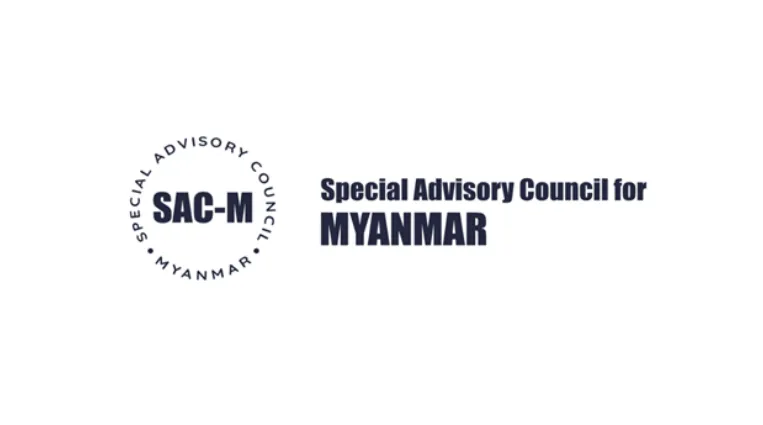SAC-M Briefing Paper: The ICC Can End the Myanmar Military’s Impunity
15 December 2022

SUMMARY
The International Criminal Court (ICC) was established in 2002 by a treaty, the Rome Statute 1998. Its purpose is to hold individuals accountable for serious crimes under international law and to facilitate justice for victims. In Myanmar, it is unlikely that fair trials examining crimes under international law will be possible anytime soon. The ICC exists for these situations, where domestic authorities are unable or unwilling to facilitate justice themselves.
The ICC focuses on the most serious crimes under international law: acts of genocide, crimes against humanity, and war crimes. These crimes are listed in the Rome Statute and the Court conducts trials against individuals alleged to have perpetrated these crimes.
Importantly, the ICC can only investigate and conduct trials if crimes took place in territory where the ICC has legal jurisdiction. There are four main ways in which the ICC can gain jurisdiction over a territory, and each of them offers a pathway for the investigation of crimes under international law in Myanmar:
- The ICC has jurisdiction for crimes in the Rome Statute in countries that are Member States to the Rome Statute. Myanmar has not yet joined the Rome Statute, but the National Unity Government of Myanmar (NUG) has committed to joining it.
- If a State not already a Party to the Rome Statute wants to facilitate justice but is unable to do so, it can make a declaration to refer a situation to the ICC, enabling the court to then exercise jurisdiction. This is provided for under Article 12(3) of the Rome Statute. The NUG has submitted a declaration under Article 12(3) to the ICC, accepting the Court’s jurisdiction in Myanmar since 2002.
- State Parties to the Rome Statute can request the ICC’s Prosecutor to initiate an investigation, which can include instances whereby the situation is not covered by State Party membership of the Rome Statute. The Rome Statute’s Article 14 provides for this. This route to an investigation can and should be pursued for Myanmar.
- Even if a State is not a party to the Rome Statute, the UN Security Council can refer a situation to the ICC. This would enable the ICC to investigate the situation in the entire territory of Myanmar, including crimes under international law persistently being perpetrated by soldiers against populations in most, if not all, parts of the country.
These legal grounds provide multiple routes to extend ICC jurisdiction over all crimes in the Rome Statute perpetrated by Myanmar’s military against the Rohingya, including genocide. They also provide routes to extend ICC jurisdiction over all crimes perpetrated against civilians throughout Myanmar since 2002, including crimes perpetrated for many years against ethnic minorities throughout the country, and crimes perpetrated against civilians more broadly and particularly following the attempted coup of February 2021.
With multiple routes to ICC jurisdiction avail-able, and the ongoing widespread commission of human rights violations amounting to the most serious crimes under international law in Myanmar, the international community has a responsibility to ensure that leaders of the Myanmar military are prosecuted for genocide, crimes against humanity and war crimes without further delay.
Download Full Briefing Paper
Download Statement
View the original
Announcements
21 May 2025
Open letter: Malaysia must lead ASEAN with principle, not hypocrisy, to address the Myanmar crisis

Progressive Voice is a participatory rights-based policy research and advocacy organization rooted in civil society, that maintains strong networks and relationships with grassroots organizations and community-based organizations throughout Myanmar. It acts as a bridge to the international community and international policymakers by amplifying voices from the ground, and advocating for a rights-based policy narrative.